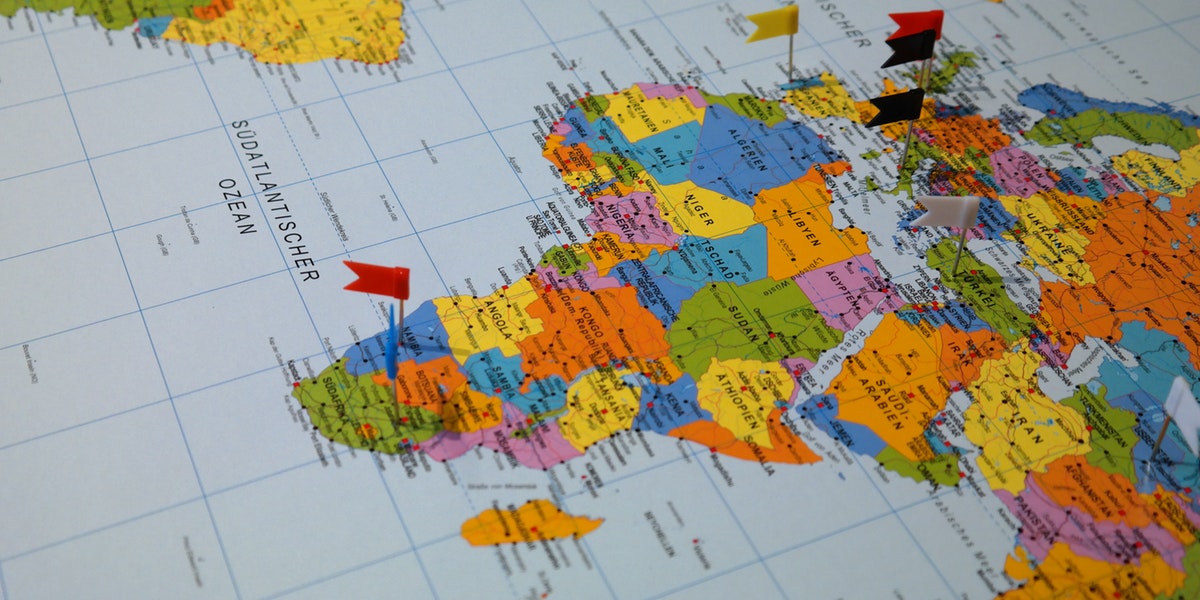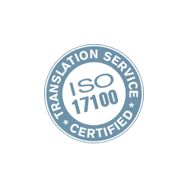How to Become a Professional Translator
The life of a professional translator offers a number of alluring benefits, but it’s by no means a walk in the park.
Competition is fierce. Deadlines are strict. And perfection is demanded.
There’ll be no blagging your way into a job in the translation industry unless you do so in at least two different languages!
Is there a UK Accredited Institute of Translators?
It’s worth noting that the road to becoming a professional translator varies from country to country.
In the United States, professional translation accreditation is granted by the American Translators Association (ATA) whereas, unlike many other European countries, the UK does not have a system of ‘certified’ translators accredited by a particular body.
The closest thing the UK has to the ATA is the Chartered Institute of Linguists (CIOL) – a professional membership body for language practitioners. In the UK, the onus falls on translation agencies and language service providers (LSPs) like ourselves to train and develop aspiring translators to a level where they are ‘self-certified’.
Once a translator is deemed certified by a practising translation company, they are considered to have the necessary translation skills to certify official documents such as birth, death and marriage certificates, legal documents, academic transcripts, and more.
As a UK-based translation service provider, we will set out a step-by-step guide on how to become a professional translator at a British agency like ourselves. In this article, we’ll also identify the basic skills needed to become a professional translator, as well as recognising the benefits of a successful translator.
Laying the Groundwork
If you have your sights set on becoming a well-rounded and highly regarded translator, there are a few basic skills that you must master to stay one step ahead of the chasing pack.
Language Skills
It seems obvious, but the first skill you have to nail down is language.
You’ll need to be fluent in both the language you will be translating from (source language) and the language you will be translating into (target language). It helps to be either bilingual or a native speaker of the target language as many people are unable to translate accurately into a language that is not native to them.
Spending time in the country where your preferred source language originates is the best way to improve your language proficiency. When you study a language at university level, you are often expected to live abroad for a semester or year as part of your course.
Computer Skills
It is extremely advantageous to have good computer skills if you want to pursue a career in translation. Knowing your way around MS Office programs is good, but if you have the ability to utilise design services like Photoshop or Sketch, you’ll massively improve your chances of finding work. Getting the knack of services like these will improve your client reach and make yourself a more versatile candidate.
Business Skills
Almost all translation work is client-based, so it’s imperative that you polish up your business acumen in preparation for meetings and networking.
Freelance translators are increasingly common these days, so there’s every chance you may progress into a freelance role. As a freelancer, you’ll be on your own so it’s up to you to wow any potential clients with your punctuality, planning and organisational skills.
Writing Skills
To become a valued translator, you have to possess sterling writing skills in your native language. If you struggle to write in your own mother tongue, your translations may be inaccurate and unreliable.

How to become a ‘Self-Certified’ Translator – Step-by-Step Guide
If you follow these 5 steps, you’ll be on the road to becoming an accomplished and certified translator in no time.
Step 1 – Choose the right language
First things first – choose a language and pursue it. There’s no point juggling multiple languages before deciding which is your favourite. Do your research, visit the country, chat to native speakers and go full steam ahead.
If you’re struggling to pick a language, we’ve written an article detailing some of the best languages to learn. Alternatively, we’ve also noted down some top tips on the best way to learn a language if you’re looking for some inspiration to get you started.
In terms of research, you may want to consider what jobs are available in your field of interest. For example, if you’re interested in international affairs it’s useful to know that the official languages of the United Nations are Arabic, Chinese, English, French, Russian and Spanish.
If you want to minimise future competition, you might want to consider challenging yourself with some of the hardest languages to learn for english speakers.
Step 2 – Further Education
With stiff levels of competition circulating through the translation industry, it’s pretty handy to have a few post-high school qualifications and/or degrees up your sleeve.
Having a Bachelor’s degree in Translation or any relevant languages will do your CV the world of good. You can even go one step further and obtain a postgraduate degree. Similar qualifications including the Diploma in Translation (DipTrans) would also give you a trump card when it comes to gaining work experience or translation jobs.
Step 3 – Focus on a specific industry
Once you’re fluent in a foreign language, it’s time to target specific industries and industry-specific terms for a field that you’d be interested in working in.
On the whole, businesses tend to employ industry-specific translators rather than generic translators as they tend to be more aware of certain terminology and relevant industry processes.
This is particularly evident in sectors such as healthcare, education, legal, and government. Alternatively, you may want to look for language courses that specialise in a certain field. For example, medical Portuguese language courses or French education language courses.
On top of this, you may want to contemplate getting non-language-related certifications in an industry that you are considering working in.
Becoming a paralegal would boost your chances of being able to translate legal documents while training to be a teacher could present you with the opportunity for educational translation work. Legal translation is an increasingly popular method of translation for businesses who work internationally, so it’s a great opportunity to take your translation career worldwide.
Step 4 – Get some work experience
Whether it’s an intern role with an LSP or a freelance job that you’ve acquired yourself, all relevant translation experience is incredibly valuable.
To gain experience, you can look for voluntary roles or entry-level work which will help you understand what it takes to produce high-quality translations at a consistent rate.
After a while, you’ll start to build a portfolio that you can use to show potential clients which could be your golden ticket to regular employment or full-time freelancer work.
Step 5 – Market yourself and your work
Once you’ve got your foot in the door and you’re starting to make a name for yourself, it’s important to make sure your name stays out there!
Marketing yourself and your work is great brand awareness. If you ever decide to spread your wings and go freelance, you’ve got to have that ‘brand’ behind you to pick up prospective clients.
The world is your oyster when it comes to marketing your work. You can build your own website, write blogs, join online groups for professional translators, and most importantly, sell your services worldwide through online platforms.

Contact Us
The successful translators don’t stop there. They continue to learn and widen their industry knowledge all the time. Whether that’s learning a new language or targeting further industries, there’s always another step in the process!
If you’re interested in pursuing a career in translation or interpretation, we offer a range of training services including the Diploma in Translation course to help you work towards the relevant CIOL exams.





